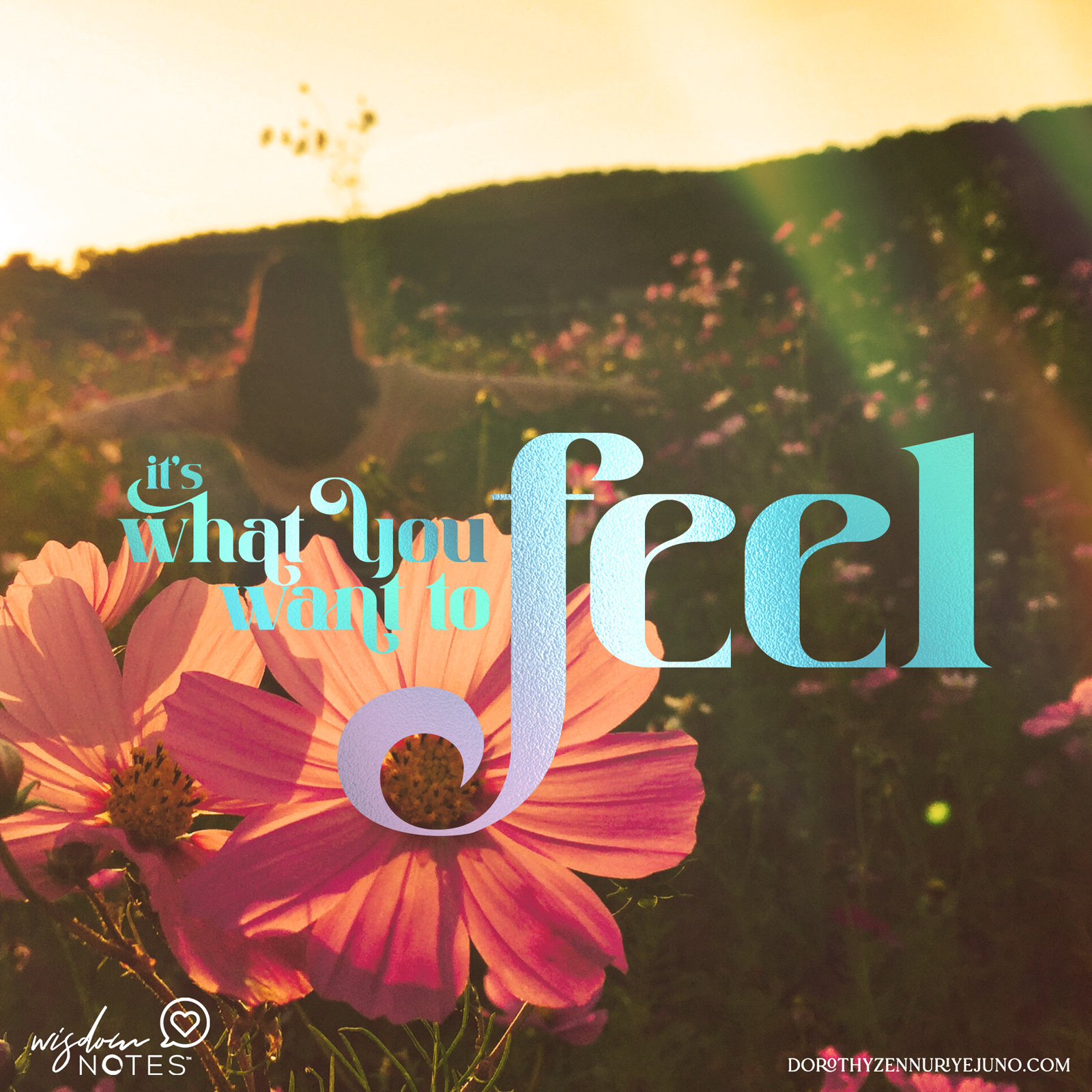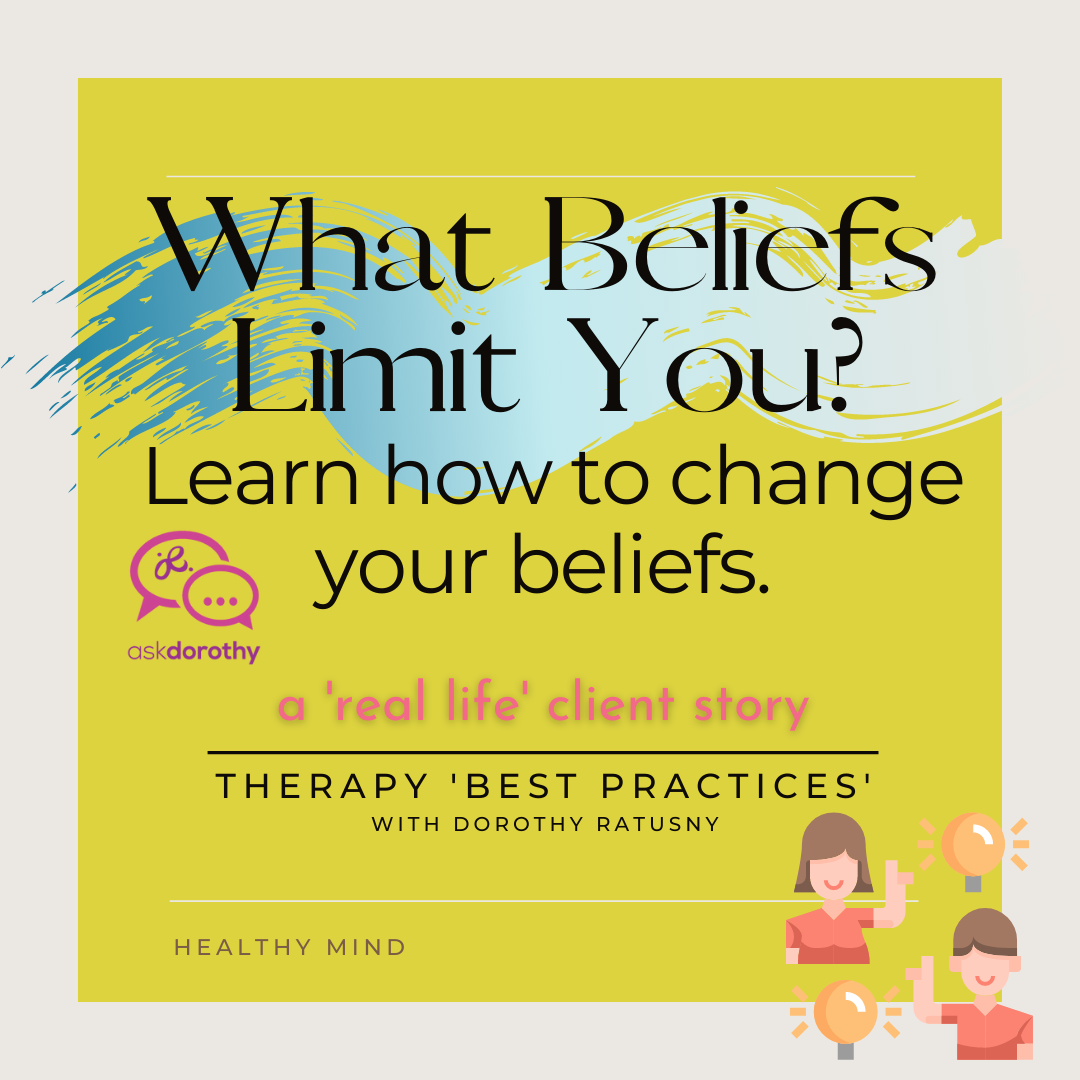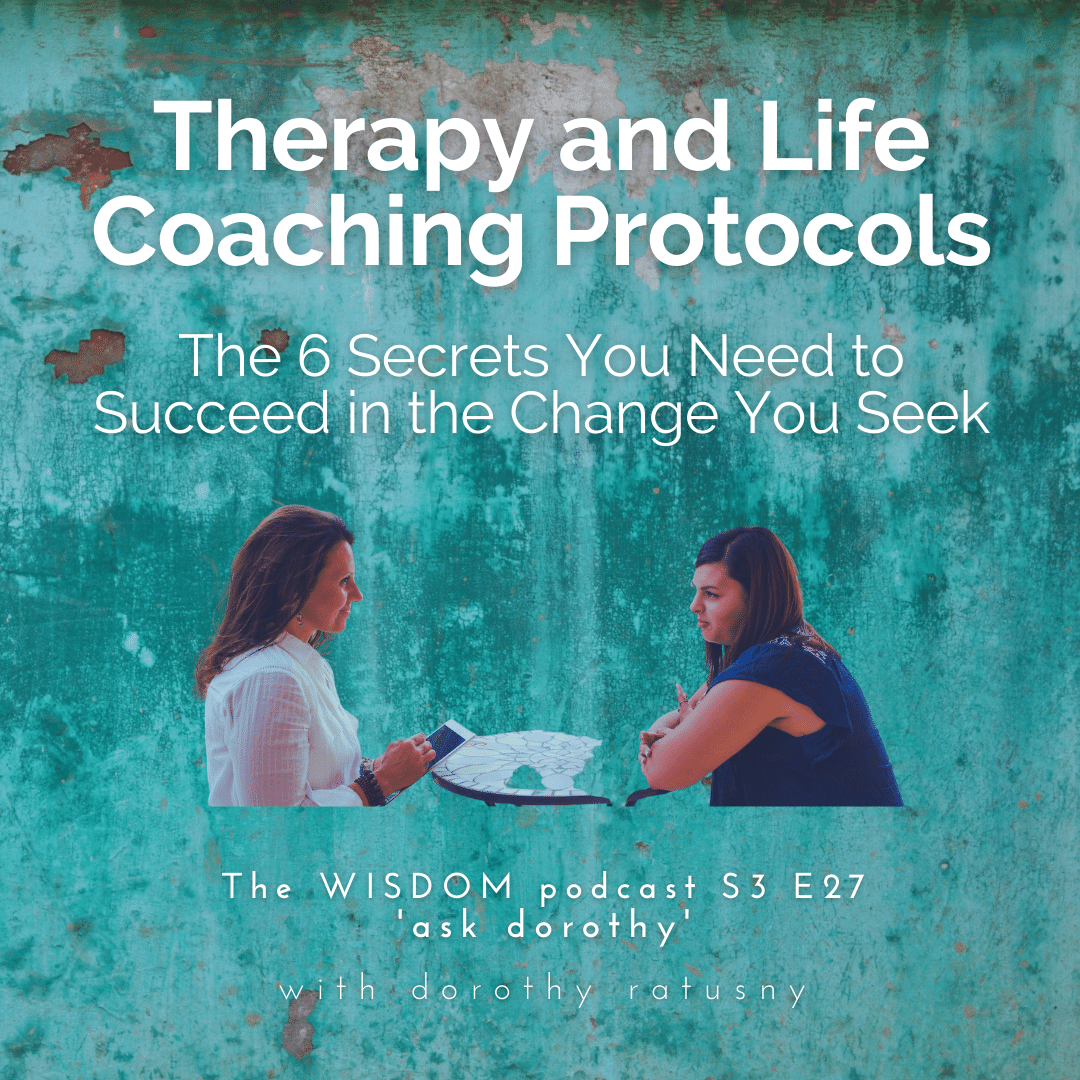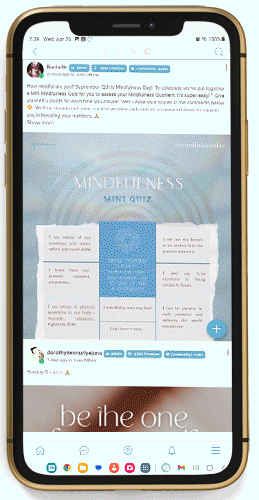‘ask dorothy’
Be Honest With Yourself | A Real Life Client Story
There is a choice that we make at some early point in our developmental process. It often goes undetected. It is a point and space in time in which we distinctly forgo some or much of our innate confidence and the pure knowing of who we are and what is important to us in trade for what we are being taught in the replete messages in the world and through our caregivers of how we are to be socially acceptable, how we are to best fit in, and to be approved of by others.
It is at this precipice that we put aside some of what we know to be true and begin a conversation in our mind that preempts what our heart is speaking.
If you continue to live here; in the space and time of the world inside your mind and in the thoughts that you convincingly hold; and with the learned beliefs that you are not good enough as you are; then you may build a life, influenced by what others have said you must do, rather than what truth and integrity you hold from a deeper place of witnessing your inner landscape and the intimate portrayal of honesty and integrity that rivals nothing.
We all know how to live in our truth. We as a collective, and as a human race have moved in various degrees away from this; and some of us have dangerously ventured into a space that we have constructed in our mind that makes it okay to behave in ways that is self-governed in dishonest acts.
And yet there is always an inner honing device, called consciousness; that is resistant to what thoughts and convincing beliefs we may hold; that allows us the inner integrity of conscience.
As parents we continue to model to our children what it means to live in our truth; or to live in the tremendous pressure of society to model a perception that will be looked upon with approval.
At what age did you begin to compromise your truth to yourself by the thoughts that you told yourself and believed, and perhaps the thoughts that were once the words and messages spoken by others? At what time did you notice this and call it back; to live in the honest truth of what is?
My client, at the time of writing this, is about to turn 17 and has just begun grade 12. We had been working together as she and her parents sought my help for her anxiety and panic attacks, in relation to the amount of pressure she places upon herself to succeed in sport and academics.
She is a high performer in every aspect of her life; and excels in all of her courses as well as the game of basketball and soccer to which she plays at an elite level.
As well, this client’s anxiety was a lot bigger than she ever admitted to. The stress of always needing to do her best in everything and to constantly compete with her peers in school and in sport, took its toll on her body beyond what she was able to comprehend.
Recently, she developed gastrointestinal problems that were exacerbated by years of intense and extreme anxiety. She reported that she recently been scheduled for surgery to repair the damage of her bleeding ulcer.
In our most recent session, this client had an epiphany, when she allowed herself to say out loud:
“I’m not honest with myself.”
How many of us could or would admit this?
The realization that she was not honest came out of her willingness to admit that she had learned how to push through her feelings of being overwhelmed, and the constant worry that came with thinking that she needed to do better; and for being unable to enjoy her successes because she never gave herself time to relish in a ‘97’ on a test or a goal that she scored in soccer.
This revelation of honesty was a huge ‘aha’ moment. When we justify our feelings or disavow them, they don’t go away. We learn other coping mechanisms that make it possible for us to continue as best as we can; all the while our anxiety is just below the surface. At times, it returns in full force; yet like this client, we may choose to push our feelings, to deny and ignore them and hope that they will go away.
Think of it much like the sound of your infant child crying because they are hungry. You can tolerate the crying for awhile as you prepare their food; but most parents are eager to feed their hungry child; to care for their basic needs and to also relieve the crying that can be stressful in and of itself.
Not addressing her anxiety, made its symptoms that much worse; to the point where the impact was now a physical manifestation of chronic pain that became debilitating; thus no longer something that this client could ignore.
When I asked my client: “Where did she learn how to ignore or deny her physical symptoms?” – of not listening to how her body was reacting to her thoughts and feelings, and “from where did this idea of not being honest with herself come from?”
My client’s words: “everyone does this.”
She is right. Our early socialization, together with the learned conditioning of social mores of our formal education, instills the notion of comparison and competition and of how not to appear ‘different’ or ‘weaker’ as this means that we are ‘less than’.
As coping mechanisms, even though they are not entirely effective, holding secrets, attempting to be what others value highly; being careful so as not to reveal too much of one’s vulnerabilities are rooted in the fear of what others may think or say has the impact of creating anxiety and a façade that keeps us removed from our self.
My client admitted that feeling overwhelmed had become a normative part of life (even though this was not ideal; and anxiety robbed her of many moments that could instead have been lived in the present and in the enjoyment of her many successes and achievements).
Your ability to be self-honest is actually your default. It is what we are born to be. Babies instinctively cry when hungry or if they have a fever; they don’t pretend everything is ‘okay’.
The physical and psychological symptoms of anxiety act in a similar way to a smoke alarm that is sounding off. Loud and annoying, it is difficult to ignore.
Anxiety is a reminder that something needs your attention; that something is wrong; that something is out of balance. You want to become skilled at attending to your inner ‘smoke alarm’ so that you can address what is needed; circumvent a problem, and put out any metaphorical fires before they becomes unmanageable.
Self-honesty for my client meant learning how to rewire herself to acknowledge when she was feeling anxious rather than ignore and attempt to suppress the symptoms.
The plan we discussed was for her to pause whenever she noticed symptoms of anxiety including and especially, the pains in her stomach; and to intervene using one of the several techniques that we practiced together, to help her address the situation and the cause of her anxiety in a healthy and productive way.
One of the strategies was to determine if these intrusive thoughts were accurate and real or thoughts of worry that were unrealistic as she focused on a worst case scenario, or an untrue or irrational fear.
Honesty means that you have to look inward first; to examine the thoughts that you tell yourself because what you tell yourself, you believe.
It may take a bit of practice to re-write the thoughts that you tell yourself; but in the end it means that you are seeking self-honesty as a virtue and also an enlightened way of being which then makes it easier for you to “live your truth.”
I’m going to leave a link for a best practice to help you to challenge and change your thoughts, so that your thoughts reflect what is accurate and true. This will help you to change how you feel, first as you ensure that your thoughts are based in truth.
Self-honesty builds confidence. When you are willing to acknowledge what is true, you have the power to effect what change you want.
‘Truth’ even in the face of disappointment, defeat, and adversity is something that you can work with. You can mobilize yourself to take action to help you make a desired change; to see what ‘is’ as an opportunity for growth and learning; and sometimes, the truth helps you find an alternative means of achieving your heart’s desire.
Honesty is your inner compass. Your ability to be truthful with yourself first and foremost is one of the most important ways to build confidence. To know yourself best, inspires self-improvement and personal transformation because of what you learn about yourself and in the opportunities replete for change and growth.
With the confidence of being self-honest, you can much more easily practice honesty with others; you no longer have to be afraid of being judged or deemed ‘not good enough’. Through self-honesty, you witness your authentic self. This is how you live empowered.
Be willing to use your voice in honesty, first directed within; to be a witness to what ‘is’; and to what your mind and body reveal, so that you can confidently take the right steps to help yourself best; to walk your path and to make the choices that will always align you with what is most important and right for you.
This is how you awaken to the brilliance of what you are.
My client ‘re-learned’ how to read her body’s cues (especially the anxiety symptoms that she experienced as rapid breathing, and the pangs and knots in her stomach) and how to calm herself with deep breaths; with positive visualization and a willingness to examine and challenge her anxiety-ridden thoughts in the moments when she felt worried and overwhelmed.
This allowed her to approach situations in which she was overloading her schedule, overthinking a play in sport where she made a mistake rather than focus on how she would make the play better next time; and to use the self-soothing and reassuring words that would help her to feel better rather than berating herself, which only diminished her confidence and that perpetuated the anxiety felt so prominently in her body.
If there is a situation that you continue to feel anxious about, ask yourself, “How could I be completely honest with myself in this situation?” Hear your inner voice offer the truth and then problem solve (the situation or event) based on what you know you need to do.
Your inner wisdom is that; wise and helpful to guide you to what you need; whether that is to take action on something, to make a change in how you think and live, or to learn and practice a new habit or behavior.
In this way, your anxiety becomes the catalyst for change and growth and the opportunity to learn what you need. Then, you can give this to yourself.
It happens with your honesty – first.
More Self-Honesty… More Self-Love:
Therapy Best Practices
An Honesty Quiz For Your Love Relationship
If you have a question or if you would like my guidance or help, please reach out to me: dorothy@dorothyratusny.com
Love in your inbox? Subscribe to my weekly WISDOM Notes here
A generous ‘thank you’ to Audio Engineer, P. Kirpikau for your excellent work! radioplato
Accompanying Music: Eternell, ‘Landing’ and ‘Lethe’















Leave A Comment
You must be logged in to post a comment.